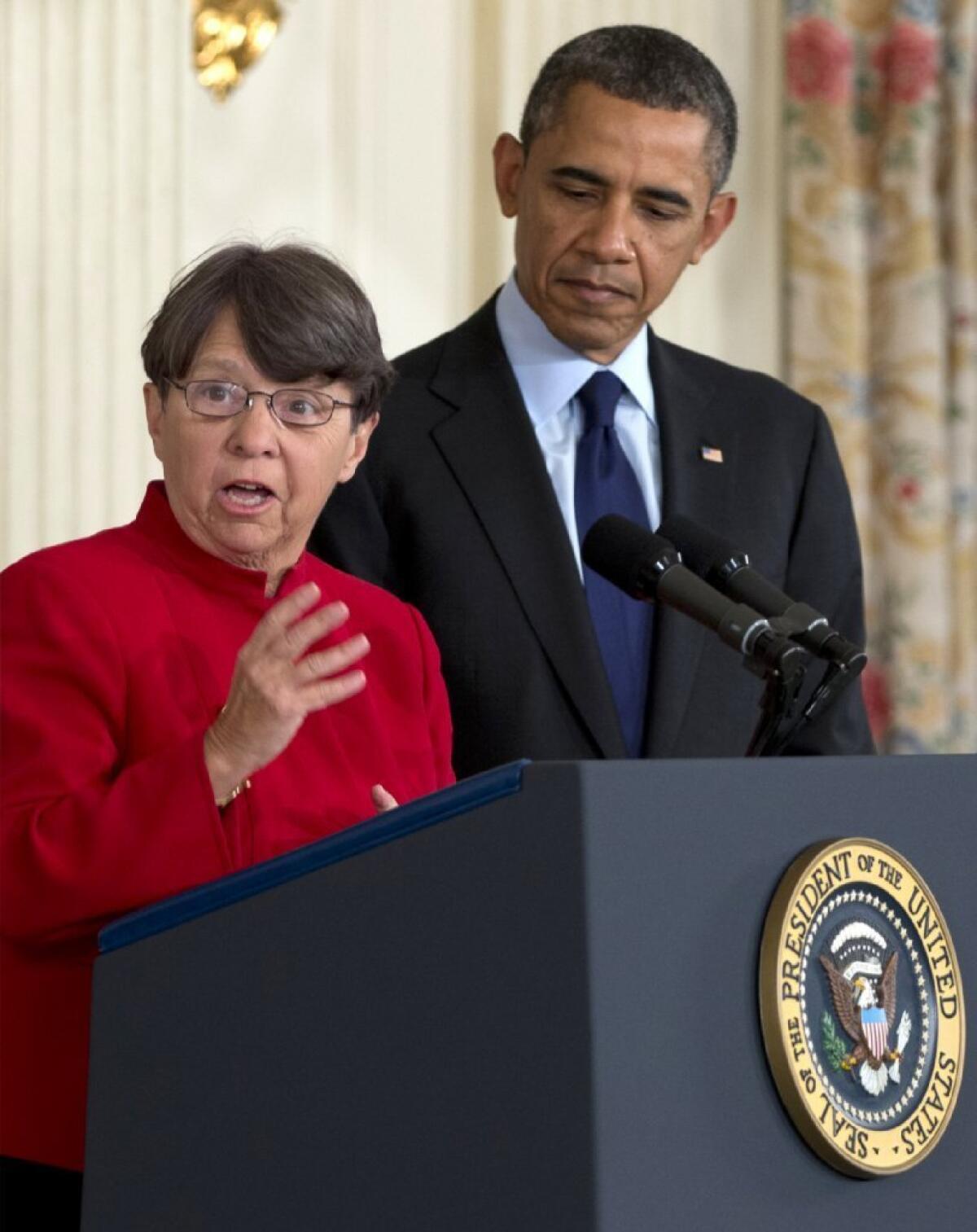New concerns raised about lawyers leaving SEC for private firms

- Share via
The Securities and Exchange Commission’s revolving door is spinning as feverishly as ever.
Lawyers who leave the SEC for private law firms often immediately begin lobbying on behalf of their new corporate clients, frequently trying to weaken agency regulations or proposed reforms, according to a new report.
The issue of top officials leaving the agency has been a concern for years in public-advocacy circles. It is common for young lawyers to put in a few years at the SEC or other government agencies before leaving for far more lucrative jobs in private industry or with high-powered law firms.
Among the concerns: that erstwhile SEC staffers will use their personal connections or up-to-date knowledge of agency initiatives to gain unfair advantage for clients. Also, there are worries that current staffers may go easily on SEC-targeted companies in hopes of currying favor for future employment.
QUIZ: How much do you know about the stock market?
The swinging door from the SEC to private firms – and sometimes from the firms to the SEC – has gotten greater attention recently with President Obama’s nomination of Mary Jo White to become the new chief of the SEC. White is a partner at Debevoise & Plimpton, representing some of Wall Street’s most powerful financial institutions.
From from 2001 through 2010, the report from the Project on Government Oversight found that 419 former SEC staffers filed 1,419 disclosure statements indicating plans to lobby the agency on behalf of their companies or clients.
In one case, a top enforcement-division official who left the agency’s San Francisco office in May 2010 filed paperwork less than two weeks later to represent the bank in investigations conducted by her former office, according to the report.
Several former SEC lawyers were involved in Wall Street’s full-court press last year to derail proposed reforms to money-market mutual funds proposed by now-departed chief Mary Schapiro. That effort failed when Schapiro could not garner enough support from her fellow commissioners.
“The revolving door between the SEC and the firms it oversees is so pervasive that it threatens the integrity of our regulatory system,” said Michael Smallberg, author of the POGO report. “The relentless flow of SEC officials to and from industry can enable powerhouse firms to shape the SEC’s culture and sway policies.”
ALSO:
Dow Jones industrials close above 14,000
IRS delays issuing tax refunds; fiscal cliff to blame?
SEC wins a partial victory in its case against a money-market fund
Follow Walter Hamilton on Twitter @LATwalter
More to Read
Inside the business of entertainment
The Wide Shot brings you news, analysis and insights on everything from streaming wars to production — and what it all means for the future.
You may occasionally receive promotional content from the Los Angeles Times.










